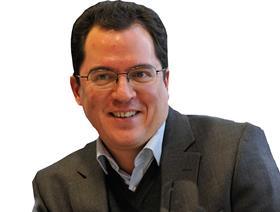
There is an important story to be told about disability, and it is told with increasing confidence. It is the idea that with some highly reasonable, and achievable, modifications to the world of work, sport, accomodation, transport, technology, businesses and public buildings, a great many people who live with a disability can play a full part in society and enjoy the basic satisfications that should be their right.
Lawyers who write for the Gazette on disability commonly cite the shift in perceptions that the Paralympics achieved. And with the overnight shift to remote and flexible working, the Law Society’s Lawyers with Disabilities division noted that adjustments they had long campaigned for were now here – continuing them in a post-Covid world is a priority.
Progess here has not just been voluntary – disability is a protect characteristic in law (though with some unwelcome get-arounds).
These are all advances to be welcomed. Their basis in many cases is that disabled people don’t have a problem, society does and it is society that needs to change.
This is called the social model of disability.
In the service of this principle, good things should happen.
For example, a previously disorganised team leader should get their act together so that a lawyer on the team who becomes more easily fatigued is not needlessly required to work nights on their part of a corporate deal.
Technology should assist visually and aurally impaired lawyers and judges. The list is long.
But for well meaning reasons, the ‘social model’ is too often presented as the only model. And it is developing as a tool by which some people with a disability are denied rights, or presented with fights for support they could well do without.
This starts in early childhood. The staff at local authorities commonly refuse to assess children with disabilities, and resist acknowledging the child’s needs, on the basis that the child is trailing its peers – rather than fundamentally different. The child might ‘catch up’ if its parents just try hard enough.
Social workers check annually that static and incurable conditions haven’t ‘improved’, such that services can be removed.
And it is there in the benefits system and in education. An cruel outsourced industry has grown up around challenging people’s unfitness to work. And the provision of education support for a disabled child can be dependent on ‘improvement’, in a way that education provision is not for non-disabled children.
This mindset, which is close to becoming set in stone, established in law and regulation, strikes me as the dark side of the social model.
We love inspirational stories – but the ubiquity of such thinking quickly takes us to a place where it is assumed that with the right accommodation anyone in a wheelchair can be an athlete.
We have built a benefits system based on the idea that any adversity can be overcome – complete with legislation, rules and sanctions. Worse, those sanctions are sold as incentives.
Among the disabled people left out and caught out by the social model of disability is my youngest daughter. Her Rett syndrome (caused by a genetic mutation) means she is hardwired to never walk or talk. Deliberate movements are extremely hard work for her.
No societal accommodation will enable her to become a lawyer or a dentist, and it is silly to pretend it could. Yet every few years, to get renewal of her disabled parking blue badge, the council requires her (well, us) to go through the process of proving she still has mobility problems – so great is the moral hazard of her getting away with something deemed to be.
The social model of disability is a great and accurate model for many – for athletes, say, for an increasing number of lawyers I know, and for some prominent members of the House of Lords. Their achievements are immense, and that is why they are noticed and become reference points.
But when I hear political parties, businesses and charities announce that they have adopted the social model as their guiding definition, my heart sinks.
It cannot be the sole definition, because it does not include or empower all people with a disability. And as an idea its has been used by policy makers and officials to make human rights for disabled people dependent on achievement and improvement.
Whereas for the rest of us, high achieving or of indifferent accomplishments, our human rights are unconditionally there for us.































4 Readers' comments